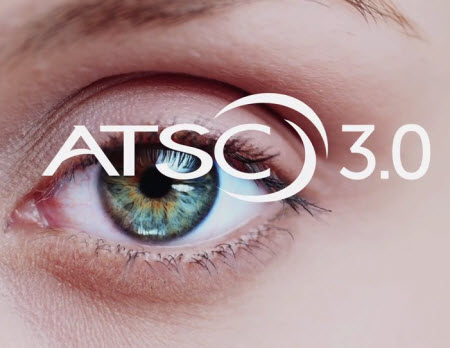NAB to FCC: Reject 'Broadcast Internet' Regulations
Said cable attempts to apply regs are ham-fisted effort to stifle competition

The smarter way to stay on top of the multichannel video marketplace. Sign up below.
You are now subscribed
Your newsletter sign-up was successful
Broadcasters are hitting back hard on critics of the FCC's proposal to facilitate TV station's flexible use of their new ATSC 3.0 broadcast transmission standard to become a broadband as well as broadcast player, saying efforts to impose new regs, or exhume old ones, are cynical and unnecessary.
That came in reply comments by the National Association of Broadcasters on the FCC's Broadcast Internet proposal.
The FCC voted unanimously in June on a proposal to help promote broadcasting as a new ancillary/competitive broadband service by making it clear that legacy broadcast regulations do not apply to broadcast-delivered internet services like over-the-top video and data made possible by the ATSC 3.0 broadcast transmission standard.
Not so fast said MVPDs,
Cable operators have called on the FCC to mandate that broadcasters deliver a high-definition version of their primary channel before using spectrum for ancillary services and want the FCC to boost the fee broadcasters already pay for using extra digital spectrum for those ancillary services.
Cable operators also say that retrans regulations should apply to carriage negotiations that include ancillary "broadcast internet" services.
Separately, tech companies using the "white spaces" between TV channels have argued that any broadcast TV station signal that spills over
The smarter way to stay on top of the multichannel video marketplace. Sign up below.
NAB said the FCC was right not to apply such "heighten regulatory mandates" in its order approving the voluntary adoption of ATSC 3.0. "As with nearly every other industry under the Commission’s purview," NAB told the commission, "innovation is best unleashed when the government assists rather than hinders experimentation. It bears repeating that, unlike nearly every other spectrum-based service, broadcasters are not seeking additional spectrum to make this transition, and indeed following the broadcast incentive auction have less."
As to cable's beefs, NAB said: "Having twice failed to impose unnecessary and unwarranted burdens on broadcasters in a ham-fisted attempt to stifle competition, the cable lobby is now back for a third bite at the apple. Their arguments have not improved with repetition, and the Commission should promptly dismiss them."
It said NCTA-The Internet & Television Association's call for applying retrans regs is a "typically Pavlovian response to any regulatory issue involving broadcasting," and points to the FCC's rejection of earlier efforts to apply retrans to "broadcast internet," which is NAB's--and the FCC's--rebranding of the ATSC 3.0 "next gen TV" brand.
Of the HD mandate, NAB said the FCC previously rejected that HD signal mandate as well and says the FCC "should not entertain this effort to sneak in a backdoor HD mandate by imposing new requirements on broadcasters that eventually choose to experiment with Broadcast Internet services."
As for the ancillary service fee issue, it calls that a complex subsidy scheme from folks who "have never demonstrated any care or concern for television viewers," adding: "We urge the Commission not to hamper innovation by imposing new and unwarranted regulatory burdens."
Contributing editor John Eggerton has been an editor and/or writer on media regulation, legislation and policy for over four decades, including covering the FCC, FTC, Congress, the major media trade associations, and the federal courts. In addition to Multichannel News and Broadcasting + Cable, his work has appeared in Radio World, TV Technology, TV Fax, This Week in Consumer Electronics, Variety and the Encyclopedia Britannica.

